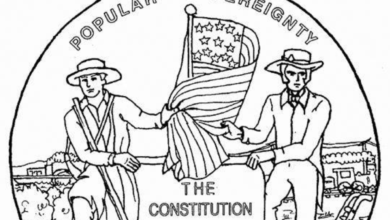A Symphony of Sound: Ozark Radio News

The Ozarks, a region of rugged beauty spanning southern Missouri and northern Arkansas, possesses a unique charm deeply intertwined with the rhythm of radio waves. ozark radio news More than just a means of communication, radio in the Ozarks has served as a vital lifeline, a cultural cornerstone, and a comforting companion for generations. From the earliest crackling broadcasts to the digital age, radio has played an indispensable role in shaping the lives and identities of the people who call this region home.
The advent of radio in the Ozarks brought with it a revolution in information dissemination. In a region where news traveled slowly, radio became the primary source of information on local events, weather forecasts, and agricultural updates. It connected isolated communities, breaking down geographical barriers and fostering a sense of shared experience. Radio broadcasts carried the voices of farmers, politicians, and community leaders, providing a platform for diverse perspectives and fostering civic engagement. Moreover, radio brought the world to the Ozarks, introducing listeners to new music, ideas, and cultures, broadening horizons and enriching the lives of rural residents.
Beyond its informational role, radio has deeply embedded itself into the fabric of Ozark culture. The distinctive twang of bluegrass music, the soulful melodies of country and gospel, and the rich storytelling traditions of the region have found a cherished home on the airwaves. Local radio stations have become champions of homegrown talent, providing a platform for aspiring musicians and storytellers to share their gifts with the world. From live music broadcasts to community events featuring local artists, radio has played a pivotal role in preserving and promoting the unique cultural heritage of the Ozarks.
Key Players Shaping the Soundscape
The Ozark radio landscape is a diverse tapestry woven from a multitude of threads. A constellation of stations, each with its own unique character and voice, dot the region. Some are long-established institutions, their history deeply intertwined with the communities they serve. Others are newer ventures, embracing innovation and adapting to the evolving media landscape.
Among the prominent players are stations like [Insert names of prominent stations and brief descriptions, e.g., “KSMO-FM, known for its eclectic mix of Americana and classic rock,” or “KOAM, a long-standing news and talk station with a strong local focus”]. These stations serve as vital sources of information and entertainment, providing a constant soundtrack to the lives of their listeners.
Community radio stations also play a crucial role in the Ozarks. These non-profit organizations are often run by volunteers and dedicated to serving the specific needs and interests of their local communities. They provide a platform for underrepresented voices, offer opportunities for local musicians and artists, and foster a sense of community ownership over the airwaves.
The Enduring Impact
The impact of Ozark radio extends far beyond mere entertainment. It plays a critical role in community building and information dissemination. In times of crisis, such as severe weather events or natural disasters, radio stations serve as lifelines, providing crucial emergency information and connecting communities in need. They also play a vital role in promoting local businesses, supporting the regional economy, and fostering civic engagement.
Furthermore, Ozark radio has played a crucial role in preserving the region’s rich cultural heritage. By showcasing local music, dialects, and storytelling traditions, radio helps to keep these vital elements of Ozark culture alive and thriving. It provides a space for the exchange of ideas, the sharing of stories, and the celebration of local identity.
Navigating the Digital Age
Like many media outlets, Ozark radio stations face significant challenges in the digital age. The rise of streaming services, podcasts, and social media has fragmented the audience and presented new competition for listener attention. Declining advertising revenue and the increasing costs of operating a radio station further complicate the landscape.
However, these challenges also present opportunities for innovation and adaptation. Many stations are embracing digital platforms, expanding their reach through online streaming, podcasts, and social media presence. They are exploring new revenue models, such as membership programs and listener donations, to ensure their long-term sustainability.
A Call to Action
The future of Ozark radio depends on the continued support of its listeners and the broader community. By tuning in, supporting local advertisers, and contributing to their favorite stations, listeners can help ensure the continued vitality of this vital community resource.
Moreover, it is crucial to advocate for policies that support the sustainability of local media. These policies may include tax incentives for local broadcasters, support for community media initiatives, and measures to address the dominance of large media conglomerates.
Conclusion
Ozark radio is more than just a collection of sounds; it is a reflection of the soul of the region. It is a testament to the power of community, the resilience of local culture, and the enduring importance of human connection. As the Ozarks continues to evolve, radio will undoubtedly remain an integral part of its story, a constant companion that connects, informs, and inspires.
FAQs
What are the most popular radio stations in the Ozarks? This will vary depending on location and individual preferences, but some popular stations include [Insert names of popular stations].
How can I support my local radio station? Listen regularly, support local advertisers, make a donation, attend station events, and share your appreciation for their work.
What are the challenges facing Ozark radio today? Challenges include competition from digital media, declining advertising revenue, and the need to adapt to changing listener habits.
How does Ozark radio differ from other regional radio? Ozark radio often has a strong emphasis on local news, community engagement, and the preservation of regional culture, reflecting the unique character of the Ozarks.
What is the history of radio broadcasting in the Ozarks? Radio broadcasting in the Ozarks has a rich history, dating back to the early 20th century. Early stations played a vital role in connecting isolated communities and providing essential information to rural residents.
You May Also Read: https://bigbestwire.com/ethereum-price-cad/



